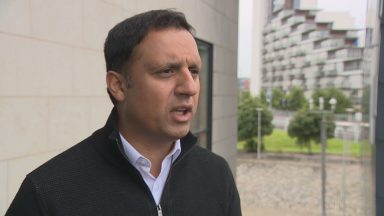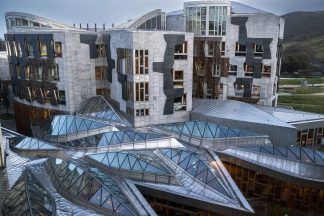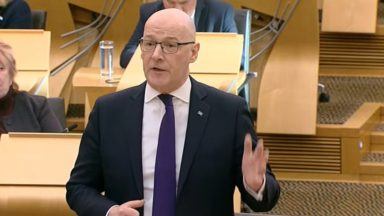Key Points
-
 Scotland’s deficit increased by £3.5bn in the last year reaching more than double that of the UK
Scotland’s deficit increased by £3.5bn in the last year reaching more than double that of the UK -
 Scotland’s finance secretary said the deficit was a reflection of UK Government choices and not of the Scottish Government’s
Scotland’s finance secretary said the deficit was a reflection of UK Government choices and not of the Scottish Government’s -
 Falling North Sea income and increased spending on health and social protection has driven the gap between revenue and expenditure
Falling North Sea income and increased spending on health and social protection has driven the gap between revenue and expenditure -
 The UK Government said the figures underline the collective economic strength’ of the United Kingdom
The UK Government said the figures underline the collective economic strength’ of the United Kingdom -
 Following cuts by the UK Government, the Scottish Government is ending universal winter fuel payment for all pensioners
Following cuts by the UK Government, the Scottish Government is ending universal winter fuel payment for all pensioners
Scotland’s deficit has increased by £3.5 billion in the past year, new figures show, reaching more than double that of the UK.
Falling North Sea income and increased spending on health and social protection has driven the gap between revenue and expenditure.
The Government Expenditure and Revenue Scotland (GERS) report showed a net fiscal deficit of £22.68 billion in 2023-24, compared with just over £19 billion the previous year.
As a percentage of the country’s GDP, the deficit has increased from 8.4% to 10.4%, whereas the UK deficit as a whole fell during the same period.
Total Scottish Government revenue increased from £86.9 billion to £88.5 billion.
Government expenditure per person in Scotland is also £2,417 higher than the rest of the UK, with £20,418 spent on average for every single person north of the border.
Scottish finance secretary Shona Robison said the deficit was “not a reflection on the finances or policies of the Scottish Government – it is a reflection of UK Government choices”.
It comes as the Scottish Government confirmed it had “no alternative” but to follow the decision south of the border and stop providing all pensioners in Scotland with a universal winter fuel payment.
Responsibility for the winter fuel payment will be transferred to the Scottish Government this winter, funded from the 2024-25 Scottish Budget.
But it said Chancellor Rachel Reeves’ cuts announced in July left the Scotland’s budget down by up to £160m.
Responding to the figures published on Wednesday, Robison said: “I welcome the fact that Scotland’s revenues grew last year, with those generated onshore growing faster than in the rest of the UK, thanks in part to our progressive approach to tax and the revenue from renewable energy.
“As the report makes clear, the notional deficit is not a reflection on the finances or policies of the Scottish Government – it is a reflection of UK Government choices.
“It is also important to emphasise that these figures reflect Scotland status as part of the UK. As figures from the Office for National Statistics show, the UK economic model is driven by London and the South East of England. The UK Government retains control of 40% of expenditure and over 70% of revenues in Scotland. Indeed, a significant portion of the spending allocated to Scotland relates to servicing UK Government debt, which is paid at a higher rate than our European neighbours.
“As an independent nation, we would have the powers to make different choices. As it is, we are using all the powers we do have to deliver our priorities of growing the economy, investing in net zero, eradicating child poverty and delivering strong public services.”
UK Government minister for Scotland Kirsty McNeill said the figures underline “the collective economic strength” of the United Kingdom.
“By pooling and sharing resources across the UK, Scots benefit by £2,417 more per head in public spending than the UK average. That means more money for schools and hospitals, if the Scottish Parliament chooses to invest in those areas.
“Ensuring economic stability and then delivering economic growth are two of the driving missions of the UK Government. We have reset relationships with partners across the UK, and want to work closely with the Scottish Government to produce better results for people in Scotland.”
Follow STV News on WhatsApp
Scan the QR code on your mobile device for all the latest news from around the country































